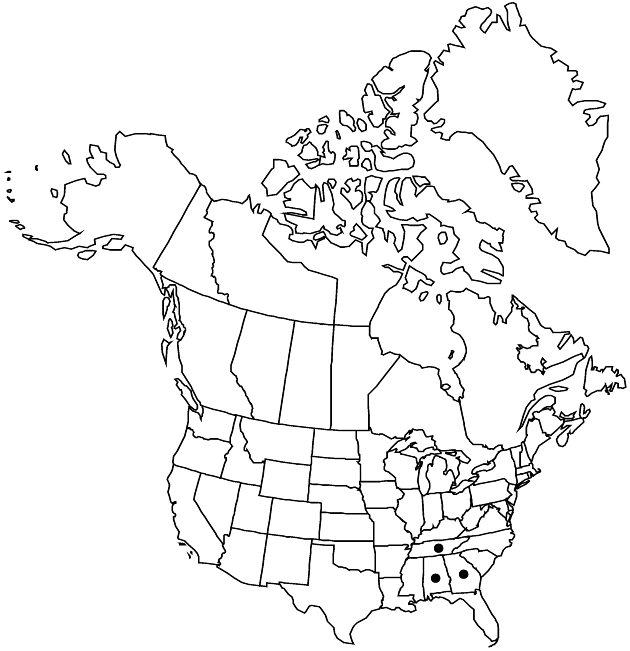Helianthus smithii
Rhodora 66: 346. 1964.
Perennials, 70–150 cm (rhizomatous). Stems (usually purplish) erect, glabrous (glaucous). Leaves cauline; opposite (proximal) or alternate; petioles to 1.3 cm; blades (light to dark green, 1-nerved) lance-linear to lanceolate, 7–18 × 1–1.8 cm, bases ± cuneate, margins serrulate, abaxial faces ± hispid, gland-dotted. Heads 1–5. Peduncles 3–6 cm. Involucres hemispheric, 5–15 mm diam. Phyllaries 15–20, lanceolate, 6–9 × 2–2.7 mm, (margins ciliate) apices short-acuminate, abaxial faces glabrous or glabrate, not gland-dotted. Paleae 5.5–6.5 mm, 3-toothed (gland-dotted). Ray florets 6–9; laminae 10–15 mm. Disc florets 25+; corollas 5.5–6 mm, lobes yellow; anthers dark, appendages dark. Cypselae 2.8–3 mm, glabrate; pappi of 2 aristate scales 1.5–2 mm. 2n = 68.
Phenology: Flowering late summer–fall.
Habitat: Dry, open woods
Elevation: 100–300+ m
Distribution

Ala., Ga., Tenn.
Discussion
Of conservation concern.
Helianthus smithii is known from relatively few sites. T. A. Storbeck (1984) concluded that it is a distinct species; he could not rule out the possibility that it might be a hybrid of H. microcephalus and H. strumosus. It may also be an extreme variant of H. strumosus that has relatively narrow leaves and small heads.
Selected References
None.